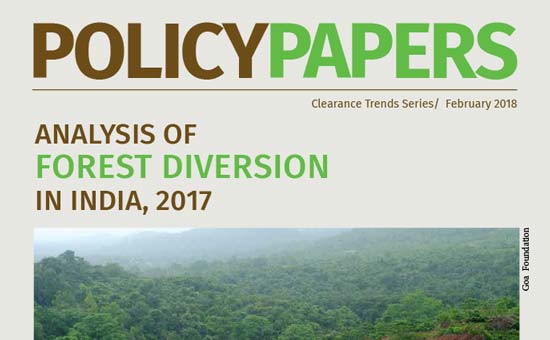The process of diversion of the forest for non-forestry purposes in India is governed by the Forest (Conservation)Act, 1980. The Act was promulgated by the Government of India in order to check deforestation and to provide for the conservation of forests and maintain overall ecological balance. The
Forest (Conservation) Act, 1980 mandates that a prior approval needs to be sought from the Central Government through Ministry of Environment, Forests and Climate Change (MOEF&CC) to use any forest land for non-forest use, to de-reserve it from its reserved forest status or to lease it out to any
private players. This prior approval is known as forest clearance. The law defines non-forest purpose broadly as the breaking up or clearing of any forest land for the cultivation of tea, coffee, spices, rubber, palms, oil-bearing plants, horticultural crops or medicinal plants and for any purpose other than
re-afforestation. Therefore, projects such as irrigation, mining, industry, infrastructure etc. will need a prior forest clearance if they are proposed on forest lands.


